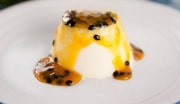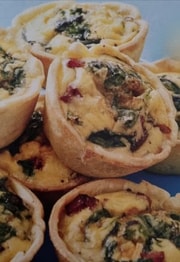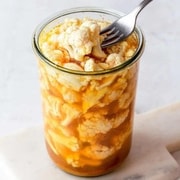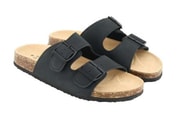Brand breakdown: Startling images expose supermarket ownership secrets!
- Replies 7
As people wander through the familiar aisles of our local Woolworths or Coles, filling their trolleys with the weekly necessities, they are greeted by a plethora of brands that promise variety and choice.
From the decadent chocolate section to the crunchy world of chips and the wholesome realm of cereals, it seems there's an endless array of options.
However, is this abundance of brands an illusion of diversity?
A recent eye-opening analysis by a graphic design enthusiast, who goes by the username QuantumFluxations13, peeled back the supermarket curtain to reveal a startling truth.
The majority of these beloved brands that fill the shelves of Australia's big two supermarkets are not the independent entities they appear to be.
Instead, they are the offspring of a few global conglomerates, each owning a staggering number of products across various categories.
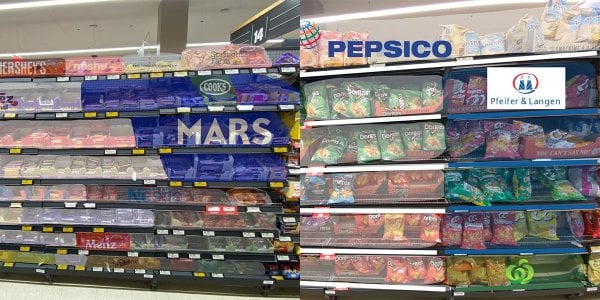
The images shared by QuantumFluxations13, which have been republished with permission, show the corporate ownership of each brand, and the findings are quite revealing.
In the chocolate aisle, for instance, the battle for shelf space was primarily between two titans: Mondelez and Mars.
These two giants collectively account for the lion's share of the market.
Mars boasts household names like Maltesers, M&Ms, Snickers, Skittles, Mars, Milky Way, Pods, Twix, Celebrations, and assortment pack Celebrations.
It also holds the majority of chewing gum brands, such as Eclipse, Extra, Juicy Fruit, and PK.
On the other hand, Mondelez is the proud parent of Cadbury and Cadbury Dairy Milk brands and associated products, and also Toblerone, Cote d’Or, and Milka, among others.
The chip section told a similar tale, with PepsiCo's brands such as Smith’s, Red Rock Deli, Doritos, Twisties, Burger Rings and Cheetos, taking centre stage, alongside Pfeifer & Langen's offerings like CC’s, Kettle, Samboy, Thins, Natural Chip Co, Cheezels and French Fries.
The American company Kellanova, commonly referred to as Kellogg’s, occupied a smaller portion of the space with its Pringles range.
However, when it comes to breakfast cereals, Kellogg's reigned supreme with classics like Coco Pops, All-Bran, Corn Flakes, Crunchy Nut, Nutri-Grain, Froot Loops, Special K, Rice Bubbles, and more, while Sanitarium, owned by the Seventh-day Adventist Church, offered Weet-Bix and Up & Go.
This pattern of concentrated ownership extends beyond the food aisles.
In the realm of personal care, Procter & Gamble, Johnson & Johnson, and Unilever dominated the shelves with brands like Gillette, Neutrogena, and Dove.
The same goes for toothpaste, where Colgate held a strong position, with smaller niche players and store brands fighting for a slice of the market.
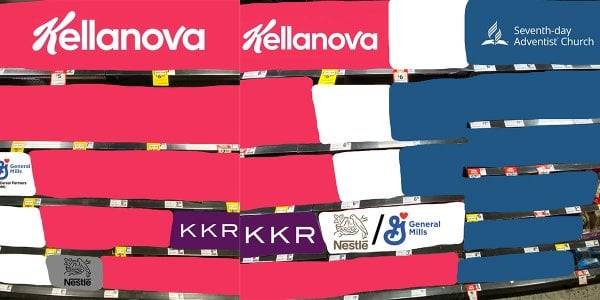
Professor Jack Cadeaux from the University of New South Wales (UNSW) Business School explained that this strategy of conglomerates owning multiple brands is not new.
‘The major supermarkets have a lot of what we call individual brands, where the consumer doesn’t really know the corporate ownership,’ he explained.
‘So that’s an old strategy that’s been used for many years—a way of eliminating your competition by buying them up.’
When it comes to which owner owns what, Professor Cadeaux said, ‘It varies drastically from one category to another, broadly food versus non-food.’
As startling images unveiled the truth behind the ownership of numerous major brands commonly found in Australia's two largest supermarkets, consumers gain insight into the extent of corporate consolidation within the retail industry.
This eye-opening revelation sheds light on the intricate web of brand ownership and market dominance, prompting consumers to question the influence wielded by conglomerates in shaping their purchasing decisions.
Leading to another discussion which delves into a sneaky supermarket strategy aimed at influencing consumer brand preferences, the connection becomes apparent.
Both analyses underscore the importance of consumer awareness and critical thinking when navigating the supermarket aisles, highlighting the need to decipher marketing tactics and make informed choices about the products they purchase.
 Have you noticed the concentration of brand ownership in your local supermarket? Does it affect your shopping choices? Share your experiences and insights in the comments below!
Have you noticed the concentration of brand ownership in your local supermarket? Does it affect your shopping choices? Share your experiences and insights in the comments below!
From the decadent chocolate section to the crunchy world of chips and the wholesome realm of cereals, it seems there's an endless array of options.
However, is this abundance of brands an illusion of diversity?
A recent eye-opening analysis by a graphic design enthusiast, who goes by the username QuantumFluxations13, peeled back the supermarket curtain to reveal a startling truth.
The majority of these beloved brands that fill the shelves of Australia's big two supermarkets are not the independent entities they appear to be.
Instead, they are the offspring of a few global conglomerates, each owning a staggering number of products across various categories.

A social media user shared images depicting which brands dominate the Australian supermarket aisles. Credits: Reddit / u/QuantumFluxations13
The images shared by QuantumFluxations13, which have been republished with permission, show the corporate ownership of each brand, and the findings are quite revealing.
In the chocolate aisle, for instance, the battle for shelf space was primarily between two titans: Mondelez and Mars.
These two giants collectively account for the lion's share of the market.
Mars boasts household names like Maltesers, M&Ms, Snickers, Skittles, Mars, Milky Way, Pods, Twix, Celebrations, and assortment pack Celebrations.
It also holds the majority of chewing gum brands, such as Eclipse, Extra, Juicy Fruit, and PK.
On the other hand, Mondelez is the proud parent of Cadbury and Cadbury Dairy Milk brands and associated products, and also Toblerone, Cote d’Or, and Milka, among others.
The chip section told a similar tale, with PepsiCo's brands such as Smith’s, Red Rock Deli, Doritos, Twisties, Burger Rings and Cheetos, taking centre stage, alongside Pfeifer & Langen's offerings like CC’s, Kettle, Samboy, Thins, Natural Chip Co, Cheezels and French Fries.
The American company Kellanova, commonly referred to as Kellogg’s, occupied a smaller portion of the space with its Pringles range.
However, when it comes to breakfast cereals, Kellogg's reigned supreme with classics like Coco Pops, All-Bran, Corn Flakes, Crunchy Nut, Nutri-Grain, Froot Loops, Special K, Rice Bubbles, and more, while Sanitarium, owned by the Seventh-day Adventist Church, offered Weet-Bix and Up & Go.
This pattern of concentrated ownership extends beyond the food aisles.
In the realm of personal care, Procter & Gamble, Johnson & Johnson, and Unilever dominated the shelves with brands like Gillette, Neutrogena, and Dove.
The same goes for toothpaste, where Colgate held a strong position, with smaller niche players and store brands fighting for a slice of the market.

These images show which brands of cereal take up the majority of supermarket aisles. Credits: Reddit / u/QuantumFluxations13
Professor Jack Cadeaux from the University of New South Wales (UNSW) Business School explained that this strategy of conglomerates owning multiple brands is not new.
‘The major supermarkets have a lot of what we call individual brands, where the consumer doesn’t really know the corporate ownership,’ he explained.
‘So that’s an old strategy that’s been used for many years—a way of eliminating your competition by buying them up.’
When it comes to which owner owns what, Professor Cadeaux said, ‘It varies drastically from one category to another, broadly food versus non-food.’
As startling images unveiled the truth behind the ownership of numerous major brands commonly found in Australia's two largest supermarkets, consumers gain insight into the extent of corporate consolidation within the retail industry.
This eye-opening revelation sheds light on the intricate web of brand ownership and market dominance, prompting consumers to question the influence wielded by conglomerates in shaping their purchasing decisions.
Leading to another discussion which delves into a sneaky supermarket strategy aimed at influencing consumer brand preferences, the connection becomes apparent.
Both analyses underscore the importance of consumer awareness and critical thinking when navigating the supermarket aisles, highlighting the need to decipher marketing tactics and make informed choices about the products they purchase.
Key Takeaways
- A graphic illustration revealed the significant corporate ownership concentration of brands in Australian supermarkets like Woolworths and Coles.
- Major corporations own most brands across various categories, with a handful of companies such as Mondelez, Mars, Pepsico, and Kellogg's dominating the shelves.
- There is a perceived lack of true competition in the market, as consumers are often unaware that many different products are owned by a few large entities.
- New market entrants find it incredibly difficult to compete due to challenges in securing distribution and stocking in major supermarkets, leading to a high failure rate for smaller companies.




